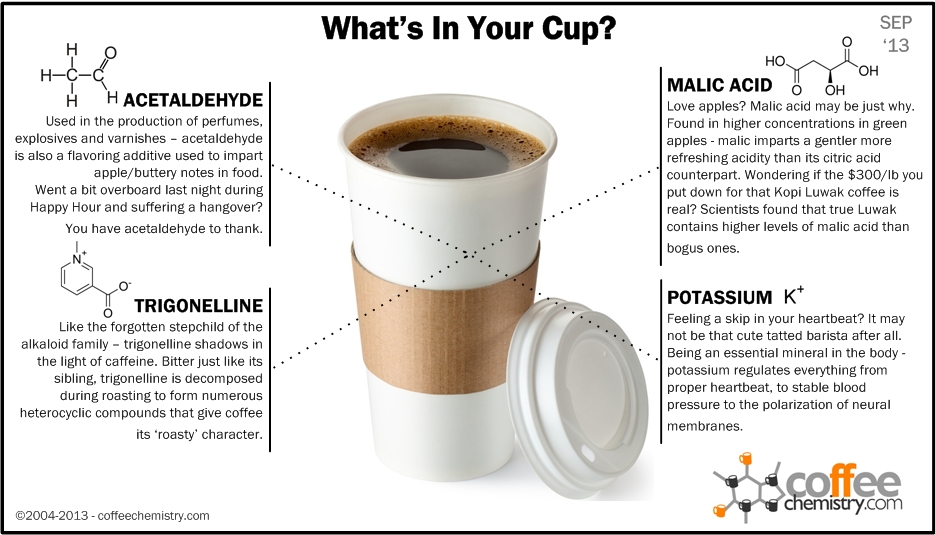Like most college students, you probably have coffee running through your veins like it’s hooked up to an IV. But, have you ever stopped to wonder why your favorite beverage smells so good?
According to science, coffee has several properties that make it one of the most appealing smells to humans, and obviously the sleep deprived college student. So grab that cup and have another shot of espresso because science says you can.

Gif courtesy of giphy.com
The Science of Smell
Smell has long been known as one of the most heightened senses in humans. What makes smells unique and so potent? The body registers smells on a structure called the olfactory bulb, located in the brain. This bulb has a set of olfactory neurons that are attached to a specific odor.
The structure of molecules traveling through the air and into your nose are often associated with a certain smell. Just as wine can be “floral” or “earthy”, smells can hold these same traits. Want to become an expert coffee taster, find out how.
What’s in your cup?

Photo courtesy of coffeechemistry.com
The first and most important component is caffeine. Responsible for the release of dopamine, caffeine triggers your brain to make you feel more awake and alert. Citric acid and phenols are the main molecules that cause coffee’s signature bitterness and dark color.
Additional aromatic compounds are responsible for the fragrant properties of coffee. These compounds are brought out during coffee bean roasting, as it is often considered the most important part of coffee processing. The heat and constant churning alter the chemical structure of the aromatic compounds, create the caramelization and fruity undertones you know so well. Here’s how to make the world’s most perfect cup of coffee.
Beans! ☕️ #cincinnati #coffeeplease #coffee #espresso A photo posted by Coffee Please (@cincycoffeeplease) on Nov 5, 2015 at 10:13am PST
According to science, coffee is one of the most appetizing smells to humans. The unique aroma of coffee hits all the attractive scents including sweet, spicy, fruity, floral, and smoky. Specifically each scent has its own molecule. As previously mentioned phenols create the bitterness found in coffee, but they also generate the smoky or earthy smell often found in dark roast coffee.
Another molecule, Furfurylthiol, is known to be associated with “coffee smell” by itself according to certain studies. Additionally, Mercapto is a “spicy” scent commonly associated with curries and is even found in some human sweat. Lastly, Hydroxymethylfurfural (HMF) is responsible for the caramel or sweet smell that attracts most people to drink coffee. Want to learn more about the chemistry of coffee? All the molecules and aromatic compounds are listed here.
A Gene for Caffeine

Gif by ucresearch.tumblr.com
Scientists have found that there may be a genetic component to your coffee addiction. Eight genes are said to be linked to heightened metabolic rate and affinity for caffeinated beverages. These genes may also be responsible for how coffee affects mood and alertness after consumption. So next time that coffee smell is beckoning you, blame it on your genes.


